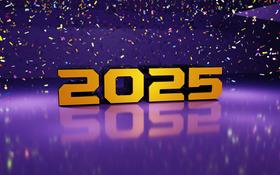For the 2025-26 school year, there are 7 public schools serving 1,552 students in Quincy, WA.
The top ranked public schools in Quincy, WA are Mountain View Elementary School, Quincy Innovation Academy and Monument Elementary School. Overall testing rank is based on a school's combined math and reading proficiency test score ranking.
Quincy, WA public schools have an average math proficiency score of 21% (versus the Washington public school average of 41%), and reading proficiency score of 25% (versus the 53% statewide average). Schools in Quincy have an average ranking of 1/10, which is in the bottom 50% of Washington public schools.
Minority enrollment is 88% of the student body (majority Hispanic), which is more than the Washington public school average of 52% (majority Hispanic).
Best ºÚÁÏÍø¹ÙÍø Schools in Quincy, WA (2025-26)
School
(Math and Reading Proficiency)
(Math and Reading Proficiency)
Location
Quick Facts
Rank: #11.
Mountain View Elementary School
(Math: 30-34% | Reading: 25-29%)
Rank:
Rank:
2/
Bottom 50%10
119 D St Nw
Quincy, WA 98848
(509) 787-4548
Quincy, WA 98848
(509) 787-4548
Gr: K-5 | 274 students Student-teacher ratio: 13:1 Minority enrollment: 92%
Rank: #22.
Quincy Innovation Academy
Alternative School
(Math: ≤10% | Reading: 40-59%)
Rank:
Rank:
2/
Bottom 50%10
404 1st Ave Sw
Quincy, WA 98848
(509) 787-1678
Quincy, WA 98848
(509) 787-1678
Gr: K-12 | 103 students Student-teacher ratio: 26:1 Minority enrollment: 86%
Rank: #33.
Monument Elementary School
(Math: 25-29% | Reading: 30-34%)
Rank:
Rank:
2/
Bottom 50%10
1400 13th Avenue Sw
Quincy, WA 98848
(509) 787-9826
Quincy, WA 98848
(509) 787-9826
Gr: K-5 | 295 students Student-teacher ratio: 14:1 Minority enrollment: 82%
Rank: #44.
Quincy Innovation Academy Big Picture
(Math: ≤20% | Reading: 21-39%)
Rank:
Rank:
1/
Bottom 50%10
404 1st Ave Sw
Quincy, WA 98848
(509) 787-1678
Quincy, WA 98848
(509) 787-1678
Gr: K-12 | 24 students Student-teacher ratio: 24:1 Minority enrollment: 46%
Rank: #55.
George Elementary School
(Math: 20-24% | Reading: 15-19%)
Rank:
Rank:
1/
Bottom 50%10
401 S. Washington Way
Quincy, WA 98848
(509) 785-2244
Quincy, WA 98848
(509) 785-2244
Gr: K-5 | 162 students Student-teacher ratio: 11:1 Minority enrollment: 92%
Rank: #6 - 76. - 7.
Ancient Lakes Elementary School
(Math: 15-19% | Reading: 20-24%)
Rank:
Rank:
1/
Bottom 50%10
417 C Street Se
Quincy, WA 98848
(509) 787-8950
Quincy, WA 98848
(509) 787-8950
Gr: K-5 | 389 students Student-teacher ratio: 16:1 Minority enrollment: 87%
Rank: #6 - 76. - 7.
Pioneer Elementary School
(Math: 15-19% | Reading: 20-24%)
Rank:
Rank:
1/
Bottom 50%10
224 J St Se
Quincy, WA 98848
(509) 787-1595
Quincy, WA 98848
(509) 787-1595
Gr: K-5 | 305 students Student-teacher ratio: 15:1 Minority enrollment: 94%
Quincy, Washington ºÚÁÏÍø¹ÙÍø Schools (Closed)
School
Location
Quick Facts
Early Childhood Learning Center (Closed 2023)
Special Education School
21 J St Se
Quincy, WA 98848
(509) 787-8137
Quincy, WA 98848
(509) 787-8137
Gr: PK | 33 students Student-teacher ratio: 33:1 Minority enrollment: 85%
Quincy Innovation Academy (Closed 2021)
Alternative School
404 1st Ave Sw
Quincy, WA 98848
(509) 787-1678
Quincy, WA 98848
(509) 787-1678
Gr: 7-12
417 C St Se
Quincy, WA 98848
(509) 787-4435
Quincy, WA 98848
(509) 787-4435
Gr: 6-8 | 750 students Student-teacher ratio: 16:1 Minority enrollment: 90%
Frequently Asked Questions
What are the top ranked public schools in Quincy, WA?
The top ranked public schools in Quincy, WA include Mountain View Elementary School, Quincy Innovation Academy and Monument Elementary School.
How many public schools are located in Quincy?
7 public schools are located in Quincy.
What is the racial composition of students in Quincy?
Quincy public schools minority enrollment is 88% of the student body (majority Hispanic), which is more than the Washington public schools average of 52% (majority Hispanic).
Recent Articles

Texas Schools Enrollment Trends & Policy in 2025
Latest data and policy changes on Texas public school enrollment growth, funding, and virtual education in 2025.

Financial Aid & Hidden Costs in ºÚÁÏÍø¹ÙÍø Schools
Learn about financial aid and hidden costs in public schools. Discover what parents should budget for beyond tuition-free education.

NYC Schools Still Most Segregated in 2025
Despite reforms, New York City schools remain the most segregated in the U.S. in 2025. Here’s what parents and educators need to know.
